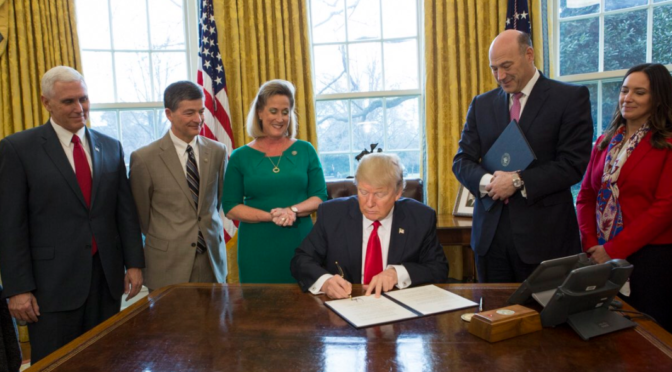As a follow-up to my August 2017 IM column on health care, this details recent actions on Capitol Hill. The House completed its work and passed a repeal and replacement for the Affordable Care Act (ACA) health care bill. The 2017 House American Health Care Act (AHC) was then forwarded to the US Senate for consideration. Upon receipt, the Senate determined that it needed to compile its own proposal. Hence, Senate majority members went into closed session to draft a new proposal.
The Better Care Reconciliation Act of 2017 (BCRA) was introduced as the vehicle used by Senate leadership to start the repeal and replace process. The following timeline provides a sense of Senate action, along with a glimpse at the procedural difficulty encountered after the seven-year attempt to totally eliminate the ACA. Though this process goes back seven years, we begin in 2017 with the 115th Congress, where a single party controls the House, Senate, and White House.
Health Care Timeline
May 4: House passes its version of health care reform, the American Health Care Act of 2017.
May 24: Congressional Budget Office (CBO) reports House bill (American Health Care Act) increases federal deficit by $119 billion; over 10 years 23 million would lose health care.
June 13: President Donald Trump weighs in with Senators at a White House lunch to “make the [House] bill more generous.”
June 22: Senate releases its Better Care Reconciliation Act of 2017.
June 26: CBO reviews draft Senate bill.
June 27: Senate Majority Leader Mitch McConnell delays vote; not enough votes for his Better Care Reconciliation Act (BCRA).
July 13: Republicans present updated version; moderates say new version will hurt those with pre-existing conditions.
July 15: Procedural vote delayed because of Senator McCain’s surgery.
July 17: Senators Mike Lee and Jerry Moran kill the bill by announcing they would vote against it.
July 25: Senator John McCain votes for a motion to proceed.
July 25: Senator Ted Cruz introduces a health care bill amendment to allow insurers to sell low cost health
insurance; bill is rejected by the Senate.
July 27: McConnell announces plans for his Health Care Freedom Act, or as his colleagues call it, “skinny repeal” bill; will not replace the ACA for two years or have a two-year transition period. It is supported by the White House, but Senators oppose the tactic.
July 28: ACA repeal vote takes place, defeated by all Democrats, and Republicans John McCain, Lisa Murkowski, and Susan Collins; bill would leave 16 million more people uninsured than ACA. After the vote, Trump continues to push for a health care resolution, while McConnell insists on moving on to tax reform and the debt ceiling.
July 28: House on August recess while Senate remains in pro forma session with no changes to the Affordable Care Act. (The pro forma session prevents President Trump from making recess appointments.)
For AFM members subject to requirements outlined under ACA, you should know that no additional work on health care has been scheduled. We expect more information after the August recess.



